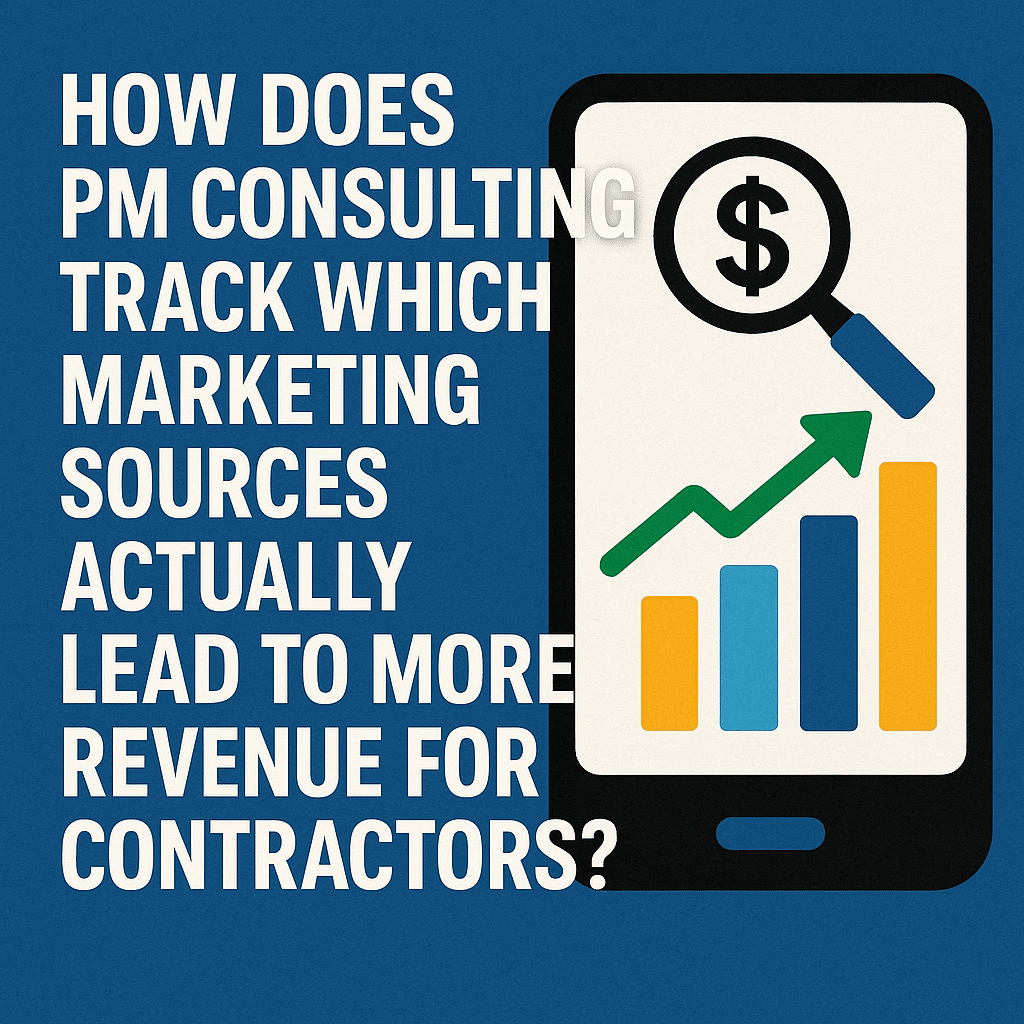What is a All-in-One CRM Platform?
A comprehensive solution for managing customer relationships and business operations.
Learn more about an All-In-One Sales & Marketing Platform and get a 14 Day FREE Trial
An All-in-One CRM platform refers to a comprehensive software solution that combines various customer relationship management (CRM) functionalities into a single system. It integrates multiple tools and features, such as contact management, lead generation, sales pipeline management, marketing automation, customer support, and analytics, among others. This unified platform aims to streamline and optimize the entire customer lifecycle, enabling businesses to effectively manage and nurture their relationships with prospects and existing customers.
Benefits of Using an All-in-One CRM Platform
A CRM platform, or a Customer Relationship Management platform, is a powerful tool that businesses use to manage their interactions with customers and potential customers. It allows companies to streamline their sales, marketing, and customer service processes, resulting in improved efficiency and increased customer satisfaction. One type of CRM platform that has gained popularity in recent years is the all-in-one CRM platform.
Learn more about an All-In-One Sales & Marketing Platform and get a 14 Day FREE Trial
An all-in-one CRM platform is a comprehensive solution that combines all the essential features and functionalities of a CRM system into a single platform. It eliminates the need for businesses to use multiple software applications or tools to manage different aspects of their customer relationships. With an all-in-one CRM platform, everything is integrated into one centralized system, making it easier for businesses to manage their customer data and interactions.
One of the key benefits of using an all-in-one CRM platform is improved efficiency. With all the necessary tools and features in one place, businesses can save time and effort by not having to switch between different applications or platforms. For example, instead of using one software for managing customer contacts, another for tracking sales leads, and yet another for sending marketing emails, businesses can do all these tasks within the all-in-one CRM platform. This not only saves time but also reduces the chances of errors or data duplication.
Another benefit of using an all-in-one CRM platform is better collaboration and communication within the organization. Since all the departments and teams can access the same platform, they can easily share information, collaborate on projects, and communicate with each other. This leads to improved coordination and alignment, resulting in a more cohesive and efficient workflow. For example, the sales team can easily access customer data and notes from the customer service team, enabling them to provide personalized and targeted sales pitches.
Furthermore, an all-in-one CRM platform provides businesses with a holistic view of their customers. By integrating all customer data into one platform, businesses can gain valuable insights into their customers’ preferences, behaviors, and needs. This allows businesses to tailor their marketing campaigns, sales strategies, and customer service efforts to better meet the needs of their customers. For example, businesses can use the data collected in the CRM platform to segment their customers and send personalized marketing emails or offers based on their preferences.
In addition to these benefits, an all-in-one CRM platform also offers scalability and flexibility. As businesses grow and their needs change, they can easily customize and expand the functionalities of the CRM platform to accommodate their evolving requirements. This eliminates the need for businesses to switch to a new CRM system or invest in additional software applications as they scale. With an all-in-one CRM platform, businesses can adapt and grow without any disruptions to their customer relationship management processes.
In conclusion, an all-in-one CRM platform is a comprehensive solution that offers numerous benefits to businesses. From improved efficiency and collaboration to better customer insights and scalability, an all-in-one CRM platform can help businesses streamline their operations and enhance their customer relationships. By investing in an all-in-one CRM platform, businesses can gain a competitive edge in today’s fast-paced and customer-centric business landscape.
Key Features to Look for in an All-in-One CRM Platform
A CRM platform, or a Customer Relationship Management platform, is a powerful tool that helps businesses manage their interactions with customers and potential customers. It allows companies to streamline their sales, marketing, and customer service processes, ultimately improving their overall efficiency and effectiveness. An all-in-one CRM platform takes this concept a step further by integrating all of these functions into a single, comprehensive system.
Learn more about an All-In-One Sales & Marketing Platform and get a 14 Day FREE Trial
One of the key features to look for in an all-in-one CRM platform is a centralized customer database. This database should store all relevant customer information, such as contact details, purchase history, and communication history. Having all of this information in one place allows businesses to have a complete view of each customer, enabling them to provide personalized and targeted interactions. It also eliminates the need for multiple systems and manual data entry, saving time and reducing the risk of errors.
Another important feature to consider is lead management. An all-in-one CRM platform should have robust lead management capabilities, allowing businesses to track and nurture leads throughout the sales process. This includes features such as lead scoring, which helps prioritize leads based on their likelihood to convert, and lead assignment, which ensures that leads are distributed to the appropriate sales representatives. By effectively managing leads, businesses can increase their conversion rates and maximize their sales opportunities.
Integration with other business tools is also a key feature to look for. An all-in-one CRM platform should seamlessly integrate with other systems, such as email marketing software, social media platforms, and customer support tools. This integration allows businesses to leverage the data and functionality of these tools within the CRM platform, creating a more cohesive and efficient workflow. For example, integration with email marketing software enables businesses to send targeted email campaigns directly from the CRM platform, while integration with social media platforms allows for easy monitoring and engagement with customers on social media.
Automation is another important aspect of an all-in-one CRM platform. The platform should have robust automation capabilities, allowing businesses to automate repetitive tasks and workflows. This not only saves time and reduces manual effort, but also ensures consistency and accuracy in processes. For example, businesses can automate lead nurturing campaigns, sending personalized emails to leads at specific intervals based on their behavior and engagement. Automation also enables businesses to set up alerts and notifications, ensuring that important tasks and deadlines are not missed.
Finally, analytics and reporting capabilities are essential in an all-in-one CRM platform. The platform should provide businesses with comprehensive insights into their sales, marketing, and customer service activities. This includes features such as customizable dashboards, which allow businesses to visualize and analyze their data in a way that is meaningful to them. It also includes reporting tools that generate detailed reports on key metrics, such as sales revenue, customer acquisition costs, and customer satisfaction. By having access to these insights, businesses can make data-driven decisions and continuously improve their processes.
In conclusion, an all-in-one CRM platform is a powerful tool that helps businesses manage their customer relationships more effectively. When looking for an all-in-one CRM platform, it is important to consider key features such as a centralized customer database, lead management capabilities, integration with other business tools, automation, and analytics and reporting capabilities. By choosing a platform that offers these features, businesses can streamline their operations, improve their customer interactions, and ultimately drive growth and success.
How an All-in-One CRM Platform Can Streamline Your Business Processes
A CRM platform, or a Customer Relationship Management platform, is a powerful tool that can help businesses streamline their processes and improve their overall efficiency. An all-in-one CRM platform takes this concept a step further by integrating various features and functionalities into a single, comprehensive solution. In this article, we will explore what an all-in-one CRM platform is and how it can benefit your business.
Learn more about an All-In-One Sales & Marketing Platform and get a 14 Day FREE Trial
First and foremost, an all-in-one CRM platform brings together different aspects of customer relationship management into one centralized system. This means that instead of using multiple tools and software applications to manage various aspects of your business, you can have everything in one place. From sales and marketing to customer support and analytics, an all-in-one CRM platform can handle it all.
One of the key benefits of an all-in-one CRM platform is that it eliminates the need for multiple software subscriptions and reduces the complexity of managing different systems. With all your data and tools in one place, you can save time and effort by accessing everything you need from a single interface. This not only streamlines your business processes but also improves collaboration and communication among your team members.
Another advantage of an all-in-one CRM platform is that it provides a holistic view of your customers. By integrating data from various sources, such as your website, social media, and email marketing campaigns, you can gain valuable insights into your customers’ behavior and preferences. This allows you to personalize your interactions and tailor your marketing efforts to better meet their needs. With a comprehensive understanding of your customers, you can build stronger relationships and increase customer satisfaction.
Furthermore, an all-in-one CRM platform can automate repetitive tasks and workflows, freeing up your team’s time to focus on more strategic activities. For example, you can automate lead generation and nurturing processes, ensuring that no potential customer falls through the cracks. You can also automate follow-up emails, reminders, and notifications, ensuring that your team stays on top of important tasks and deadlines. By automating these processes, you can improve efficiency, reduce errors, and increase productivity.
In addition to automation, an all-in-one CRM platform often includes advanced analytics and reporting capabilities. This allows you to track and measure key performance indicators, such as sales revenue, customer acquisition costs, and customer satisfaction rates. With real-time insights into your business performance, you can make data-driven decisions and identify areas for improvement. By continuously monitoring and analyzing your data, you can optimize your processes, identify trends, and stay ahead of the competition.
In conclusion, an all-in-one CRM platform is a comprehensive solution that can streamline your business processes and improve your overall efficiency. By integrating various features and functionalities into a single system, it eliminates the need for multiple software subscriptions and reduces complexity. With a holistic view of your customers, automation of repetitive tasks, and advanced analytics capabilities, an all-in-one CRM platform can help you build stronger relationships, increase productivity, and make data-driven decisions. If you want to take your business to the next level, investing in an all-in-one CRM platform is a wise choice.
Choosing the Right All-in-One CRM Platform for Your Business
What is an All-in-One CRM Platform?
Learn more about an All-In-One Sales & Marketing Platform and get a 14 Day FREE Trial
In today’s fast-paced business world, customer relationship management (CRM) is crucial for success. A CRM platform helps businesses manage their interactions with customers, streamline processes, and improve overall efficiency. But what exactly is an all-in-one CRM platform?
An all-in-one CRM platform is a comprehensive solution that combines various CRM tools and features into a single platform. It offers a wide range of functionalities, including contact management, lead generation, sales automation, marketing automation, customer support, and analytics. With an all-in-one CRM platform, businesses can centralize their customer data and streamline their operations, resulting in improved productivity and better customer experiences.
Choosing the Right All-in-One CRM Platform for Your Business
When it comes to choosing the right all-in-one CRM platform for your business, there are several factors to consider. Here are some key points to keep in mind:
1. Scalability: As your business grows, your CRM needs may change. It’s important to choose a platform that can scale your business and accommodate your evolving requirements. Look for a CRM platform that offers flexible pricing plans and the ability to add or remove features as needed.
2. Integration: An all-in-one CRM platform should seamlessly integrate with your existing systems and tools. Whether it’s your email marketing software, e-commerce platform, or accounting software, integration is crucial for a smooth workflow. Make sure the CRM platform you choose offers robust integration capabilities.
3. Customization: Every business is unique, and your CRM platform should reflect that. Look for a platform that allows you to customize fields, workflows, and reports to match your specific needs. The ability to tailor the CRM platform to your business processes will ensure maximum efficiency and effectiveness.
4. User-friendly interface: A user-friendly interface is essential for widespread adoption and ease of use. Your team should be able to navigate the CRM platform without extensive training or technical expertise. Look for a platform that offers a clean and intuitive interface, with easy-to-use features and a minimal learning curve.
5. Mobile accessibility: In today’s mobile-driven world, it’s crucial to have access to your CRM platform on the go. Look for a CRM platform that offers mobile apps or a responsive web interface, allowing you and your team to access customer data and perform tasks from anywhere, at any time.
6. Customer support: A reliable customer support team is essential when it comes to using a CRM platform effectively. Look for a CRM provider that offers responsive customer support, whether it’s through phone, email, or live chat. Having access to knowledgeable support staff can make a significant difference in your CRM experience.
In conclusion, an all-in-one CRM platform is a comprehensive solution that combines various CRM tools and features into a single platform. When choosing the right all-in-one CRM platform for your business, consider factors such as scalability, integration, customization, user-friendly interface, mobile accessibility, and customer support. By carefully evaluating these factors, you can select a CRM platform that meets your business needs and helps you achieve your goals.
Learn more about an All-In-One Sales & Marketing Platform and get a 14 Day FREE Trial
Integrating an All-in-One CRM Platform with Other Business Tools
An all-in-one CRM platform is a powerful tool that can revolutionize the way businesses manage their customer relationships. It combines various features and functionalities into a single platform, making it easier for businesses to streamline their processes and improve their overall efficiency. One of the key advantages of an all-in-one CRM platform is its ability to integrate seamlessly with other business tools.
Integrating an all-in-one CRM platform with other business tools is essential for maximizing its potential and reaping the full benefits it has to offer. By integrating with tools such as email marketing software, social media management platforms, and project management tools, businesses can create a unified system that allows for better collaboration and communication across different departments.
One of the most common integrations is with email marketing software. By integrating an all-in-one CRM platform with an email marketing tool, businesses can automate their email campaigns and track the effectiveness of their marketing efforts. This integration allows for better targeting and personalization, as businesses can segment their customer base and send tailored messages based on their preferences and behaviors.
Another important integration is with social media management platforms. Social media has become an integral part of businesses marketing strategies, and integrating an all-in-one CRM platform with social media tools can help businesses streamline their social media activities. This integration allows businesses to schedule and publish posts, monitor social media conversations, and track the performance of their social media campaigns, all from within the CRM platform.
Integrating an all-in-one CRM platform with project management tools is also crucial for businesses that rely on project-based work. By integrating these two systems, businesses can create a centralized hub where they can manage their projects, assign tasks, track progress, and collaborate with team members. This integration ensures that all project-related information is easily accessible and up-to-date, eliminating the need for multiple tools and reducing the risk of miscommunication or missed deadlines.
Furthermore, integrating an all-in-one CRM platform with customer support tools can greatly enhance businesses’ ability to provide excellent customer service. By integrating with tools such as live chat software or help desk systems, businesses can centralize their customer support activities and provide a seamless experience for their customers. This integration allows businesses to track customer interactions, resolve issues more efficiently, and provide personalized support based on each customer’s history and preferences.
In conclusion, integrating an all-in-one CRM platform with other business tools is essential for businesses looking to maximize the benefits of this powerful tool. By integrating with email marketing software, social media management platforms, project management tools, and customer support tools, businesses can create a unified system that streamlines their processes and improves their overall efficiency. This integration allows for better collaboration, communication, and automation, ultimately leading to improved customer relationships and increased business success.
Maximizing Sales and Marketing Efforts with an All-in-One CRM Platform
In today’s fast-paced business world, companies are constantly looking for ways to streamline their operations and maximize their sales and marketing efforts. One tool that has gained popularity in recent years is the all-in-one CRM platform. But what exactly is a CRM platform, and how can it help businesses achieve their goals?
Learn more about an All-In-One Sales & Marketing Platform and get a 14 Day FREE Trial
A CRM, or Customer Relationship Management, platform is a software solution that allows businesses to manage their interactions with current and potential customers. It provides a centralized database where companies can store and access customer information, track sales, and marketing activities, and analyze data to make informed business decisions. An all-in-one CRM platform takes this concept a step further by integrating various sales and marketing tools into a single platform.
One of the key benefits of an all-in-one CRM platform is its ability to streamline sales and marketing efforts. Instead of using multiple tools and systems to manage different aspects of the sales process, businesses can use a single platform to handle everything from lead generation to customer retention. This not only saves time and effort but also ensures consistency and accuracy in data management.
With an all-in-one CRM platform, businesses can easily track and manage leads throughout the sales funnel. The platform allows sales teams to capture leads from various sources, such as website forms, social media, and email campaigns, and automatically assign them to the appropriate sales representatives. This ensures that no leads fall through the cracks and that each lead receives the attention it deserves.
Furthermore, an all-in-one CRM platform provides sales teams with the tools they need to effectively manage their pipelines and close deals. The platform allows sales representatives to track their activities, such as calls, meetings, and emails and provides real-time visibility into the status of each opportunity. This enables sales managers to identify bottlenecks in the sales process and take proactive measures to address them.
In addition to streamlining sales efforts, an all-in-one CRM platform also helps businesses optimize their marketing campaigns. The platform allows marketers to create and manage targeted email campaigns, track website visitors, and analyze campaign performance. This data-driven approach enables marketers to identify the most effective marketing channels, personalize their messaging, and improve overall campaign ROI.
Another advantage of an all-in-one CRM platform is its ability to provide businesses with valuable insights through data analytics. The platform collects and analyzes data from various sources, such as customer interactions, sales activities, and marketing campaigns, and presents it in a user-friendly dashboard. This allows businesses to identify trends, spot opportunities, and make data-driven decisions to drive growth.
In conclusion, an all-in-one CRM platform is a powerful tool that can help businesses maximize their sales and marketing efforts. By integrating various sales and marketing tools into a single platform, businesses can streamline their operations, improve data management, and make informed business decisions. Whether it’s managing leads, tracking sales activities, optimizing marketing campaigns, or analyzing data, an all-in-one CRM platform provides businesses with the tools they need to succeed in today’s competitive business landscape.
Enhancing Customer Service and Support with an All-in-One CRM Platform
In today’s fast-paced business world, customer service and support are crucial for the success of any company. Providing exceptional customer service not only helps retain existing customers but also attracts new ones. To achieve this, businesses need an efficient and effective customer relationship management (CRM) platform. One such solution is an all-in-one CRM platform, which offers a comprehensive set of tools and features to enhance customer service and support.
Learn more about an All-In-One Sales & Marketing Platform and get a 14 Day FREE Trial
An all-in-one CRM platform is a software solution that combines various customer-centric functionalities into a single system. It integrates customer data, communication channels, and support tools, allowing businesses to streamline their customer service operations. With an all-in-one CRM platform, companies can manage customer interactions, track sales leads, and provide personalized support, all from one centralized location.
One of the key benefits of an all-in-one CRM platform is its ability to centralize customer data. By consolidating customer information from various sources, such as email, phone calls, and social media, businesses can gain a holistic view of their customers. This comprehensive view enables companies to understand their customers’ needs, preferences, and purchase history, allowing them to provide personalized and targeted support.
Furthermore, an all-in-one CRM platform offers a range of communication channels to interact with customers. These channels can include email, live chat, social media, and phone calls. By providing multiple communication options, businesses can cater to their customer’s preferences and ensure a seamless and convenient experience. Additionally, the platform can automate responses and route inquiries to the appropriate department, ensuring prompt and efficient customer support.
Another valuable feature of an all-in-one CRM platform is its ability to track sales leads. By integrating sales and customer data, businesses can identify potential customers and track their journey from lead to conversion. This functionality allows companies to prioritize leads, assign them to sales representatives, and track their progress through the sales pipeline. By effectively managing leads, businesses can increase their conversion rates and optimize their sales processes.
Moreover, an all-in-one CRM platform enables businesses to provide personalized support to their customers. By leveraging customer data and communication history, companies can tailor their interactions and recommendations to each individual customer. This personalized approach not only enhances the customer experience but also builds trust and loyalty. Additionally, the platform can automate routine tasks, such as sending follow-up emails or scheduling appointments, freeing up time for customer service representatives to focus on more complex inquiries.
In conclusion, an all-in-one CRM platform is a powerful tool for enhancing customer service and support. By centralizing customer data, providing multiple communication channels, tracking sales leads, and enabling personalized support, businesses can deliver exceptional customer experiences. With an all-in-one CRM platform, companies can streamline their customer service operations, increase customer satisfaction, and ultimately drive business growth. In today’s competitive market, investing in an all-in-one CRM platform is essential for businesses looking to stay ahead and provide outstanding customer service.
Increasing Productivity and Efficiency with an All-in-One CRM Platform
In today’s fast-paced business world, companies are constantly looking for ways to increase productivity and efficiency. One tool that has gained popularity in recent years is the all-in-one CRM platform. But what exactly is a CRM platform, and how can it help businesses streamline their operations?
Learn more about an All-In-One Sales & Marketing Platform and get a 14 Day FREE Trial
A CRM, or Customer Relationship Management, platform is a software solution that allows businesses to manage their interactions with customers and potential customers. It provides a centralized database where all customer information is stored, including contact details, purchase history, and communication history. This allows businesses to have a complete view of their customers and enables them to provide personalized and targeted marketing campaigns.
An all-in-one CRM platform takes this concept a step further by integrating various other business functions into the system. This means that in addition to managing customer relationships, businesses can also use the platform to handle tasks such as sales, marketing, and customer support. By consolidating these functions into one platform, businesses can eliminate the need for multiple software systems and reduce the time and effort required to switch between different applications.
One of the key benefits of an all-in-one CRM platform is increased productivity. With all customer information and business functions in one place, employees can access the information they need quickly and easily. This eliminates the need to search through multiple systems or rely on manual processes, saving valuable time and allowing employees to focus on more important tasks.
Furthermore, an all-in-one CRM platform can automate many routine tasks, such as data entry and follow-up emails. This not only saves time but also reduces the risk of human error. For example, the platform can automatically send personalized emails to customers based on their purchase history or trigger reminders for follow-up calls. This level of automation ensures that no leads or opportunities slip through the cracks and allows businesses to stay on top of their customer interactions.
In addition to increased productivity, an all-in-one CRM platform can also improve efficiency. By integrating various business functions, businesses can streamline their processes and eliminate duplicate efforts. For example, sales and marketing teams can work together seamlessly, with sales reps having access to marketing campaigns and leads generated by the marketing team. This alignment ensures that everyone is on the same page and reduces the chances of miscommunication or missed opportunities.
Furthermore, an all-in-one CRM platform can provide valuable insights and analytics. By tracking customer interactions and analyzing data, businesses can gain a deeper understanding of their customer’s preferences and behaviors. This information can then be used to tailor marketing campaigns, improve customer service, and make informed business decisions. With real-time data and analytics at their fingertips, businesses can stay ahead of the competition and adapt their strategies as needed.
In conclusion, an all-in-one CRM platform is a powerful tool for increasing productivity and efficiency in today’s business landscape. By consolidating customer information and integrating various business functions, businesses can streamline their operations and provide a better customer experience. With automation, insights, and analytics, businesses can stay ahead of the competition and make informed decisions. So, if you’re looking to boost your productivity and efficiency, it’s time to consider implementing an all-in-one CRM platform.
Customization Options in an All-in-One CRM Platform
A CRM platform, or a Customer Relationship Management platform, is a powerful tool that helps businesses manage their interactions with customers and potential customers. It allows companies to streamline their sales, marketing, and customer service processes, ultimately leading to improved customer satisfaction and increased revenue. One type of CRM platform that has gained popularity in recent years is the all-in-one CRM platform.
Learn more about an All-In-One Sales & Marketing Platform and get a 14 Day FREE Trial
An all-in-one CRM platform is a comprehensive solution that combines various CRM functionalities into a single platform. It offers a wide range of features, including contact management, lead generation, sales pipeline management, email marketing, and customer support. This means that businesses no longer need to invest in multiple software applications to handle different aspects of their customer relationships. Instead, they can rely on a single platform that provides all the necessary tools.
One of the key advantages of an all-in-one CRM platform is its customization options. Businesses can tailor the platform to meet their specific needs and requirements. They can customize the user interface, workflows, and data fields to match their existing processes and terminology. This ensures that the platform seamlessly integrates into its operations and is easy for employees to use.
Customization options also extend to the reporting and analytics capabilities of an all-in-one CRM platform. Businesses can create custom reports and dashboards to track key performance indicators and gain insights into their sales and marketing efforts. They can analyze data from different sources, such as website analytics and social media, to get a holistic view of their customer interactions. This enables them to make data-driven decisions and optimize their strategies for better results.
Furthermore, an all-in-one CRM platform allows businesses to integrate with other software applications they use. For example, it can integrate with accounting software to sync customer data and invoices. It can also integrate with e-commerce platforms to track customer orders and provide personalized recommendations. This integration eliminates the need for manual data entry and ensures that information is up-to-date across different systems.
In addition to customization options, an all-in-one CRM platform offers scalability. As businesses grow and their needs evolve, they can easily add or remove features from the platform. They can also increase the number of users and storage capacity without any disruption to their operations. This scalability ensures that the CRM platform can grow with the business and accommodate its changing requirements.
In conclusion, an all-in-one CRM platform is a comprehensive solution that combines various CRM functionalities into a single platform. It offers customization options that allow businesses to tailor the platform to their specific needs and requirements. They can customize the user interface, workflows, and data fields, as well as create custom reports and dashboards. The platform also integrates with other software applications, eliminating the need for manual data entry and ensuring data consistency. Furthermore, it offers scalability, allowing businesses to add or remove features and accommodate their growth. With its customization options and scalability, an all-in-one CRM platform is a powerful tool for businesses to manage their customer relationships effectively.
Case Studies: Success Stories of Businesses Using All-in-One CRM Platforms
Case Studies: Success Stories of Businesses Using All-in-One CRM Platforms
In today’s competitive business landscape, customer relationship management (CRM) has become a crucial aspect of any successful organization. A CRM platform helps businesses streamline their sales, marketing, and customer service processes, ultimately leading to improved customer satisfaction and increased revenue. One type of CRM platform that has gained significant popularity in recent years is the all-in-one CRM platform. In this article, we will explore some success stories of businesses that have leveraged all-in-one CRM platforms to achieve remarkable results.
Learn more about an All-In-One Sales & Marketing Platform and get a 14 Day FREE Trial
One such success story is that of ABC Corporation, a leading e-commerce company. Prior to implementing an all-in-one CRM platform, ABC Corporation struggled with managing customer data across multiple systems. This resulted in inefficiencies, as sales representatives had to manually input customer information into different databases. Additionally, the lack of integration between their sales and marketing tools made it difficult to track customer interactions and measure the effectiveness of their marketing campaigns.
However, after adopting an all-in-one CRM platform, ABC Corporation experienced a significant transformation. The platform allowed them to consolidate all customer data into a single database, eliminating the need for manual data entry. This not only saved time but also ensured data accuracy. Furthermore, the integration of their sales and marketing tools provided a holistic view of customer interactions, enabling them to personalize their marketing efforts and target the right customers at the right time. As a result, ABC Corporation saw a 30% increase in sales within the first year of implementing the all-in-one CRM platform.
Another success story comes from XYZ Services, a global consulting firm. Prior to using an all-in-one CRM platform, XYZ Services faced challenges in managing their vast client base. With clients spread across different regions and industries, it was difficult to keep track of their specific needs and preferences. This often led to missed opportunities and a lack of personalized service.
However, after implementing an all-in-one CRM platform, XYZ Services experienced a remarkable turnaround. The platform allowed them to segment their clients based on various criteria, such as industry, location, and revenue. This enabled them to tailor their services to meet the unique needs of each client segment. Additionally, the platform’s automation capabilities streamlined their client onboarding process, ensuring a seamless experience for new clients. As a result, XYZ Services saw a 20% increase in client retention and a 15% increase in client satisfaction within the first year of using the all-in-one CRM platform.
Lastly, let’s look at the success story of DEF Manufacturing, a global leader in the automotive industry. Prior to adopting an all-in-one CRM platform, DEF Manufacturing struggled with managing their extensive dealer network. With dealers located in different countries, communication and coordination were major challenges. This often resulted in delays in order processing and a lack of visibility into inventory levels.
However, after implementing an all-in-one CRM platform, DEF Manufacturing experienced a significant improvement in its dealer management processes. The platform provided a centralized communication hub, allowing dealers to easily collaborate and share information. Additionally, the platform’s inventory management capabilities provided real-time visibility into stock levels, enabling DEF Manufacturing to optimize its production and ensure timely delivery. As a result, DEF Manufacturing saw a 25% reduction in order processing time and a 10% increase in dealer satisfaction within the first year of using the all-in-one CRM platform.
In conclusion, these success stories highlight the transformative power of all-in-one CRM platforms. By consolidating customer data, integrating sales and marketing tools, and streamlining processes, businesses can achieve remarkable results. Whether it’s increasing sales, improving client satisfaction, or optimizing operations, an all-in-one CRM platform can be a game-changer for any organization. So, if you’re looking to take your business to the next level, consider implementing an all-in-one CRM platform and join the ranks of these successful businesses.
Check out this article on “Advantages of a CRM sales and marketing system” right here.
Frequently asked questions about What is a All-in-One CRM Platform?

What is an All-in-One CRM platform?
An All-in-One CRM platform is a software solution that combines various customer relationship management (CRM) functionalities into a single integrated system
What are the key features of an All-in-One CRM platform?
Key features of an All-in-One CRM platform include contact management, lead tracking, sales pipeline management, email marketing, customer support, analytics, and reporting.
How does an All-in-One CRM platform benefit businesses?
An All-in-One CRM platform helps businesses streamline their sales and marketing processes, improve customer relationships, enhance team collaboration, and gain valuable insights into their business performance.
Can an All-in-One CRM platform integrate with other business tools?
Yes, most All-in-One CRM platforms offer integrations with other business tools such as email clients, marketing automation software, accounting software, and customer support systems.
Is an All-in-One CRM platform suitable for small businesses?
Yes, All-in-One CRM platforms are designed to cater to the needs of small businesses by providing affordable and scalable solutions.
Are All-in-One CRM platforms cloud-based?
Yes, most All-in-One CRM platforms are cloud-based, allowing users to access their data and tools from anywhere with an internet connection.
Can an All-in-One CRM platform automate repetitive tasks?
Yes, All-in-One CRM platforms often offer automation capabilities, allowing businesses to automate tasks such as lead nurturing, email campaigns, and data entry.
How can an All-in-One CRM platform improve customer service?
An All-in-One CRM platform enables businesses to track customer interactions, manage support tickets, and provide personalized customer experiences, leading to improved customer service.
Are All-in-One CRM platforms customizable?
Yes, many All-in-One CRM platforms offer customization options, allowing businesses to tailor the system to their specific needs and workflows.
How can businesses choose the right All-in-One CRM platform?
Businesses should consider factors such as their specific requirements, budget, scalability, ease of use, customer support, and available integrations when choosing an All-in-One CRM platform.
An All-in-One CRM platform is a comprehensive software solution that combines various customer relationship management tools and features into a single platform. It allows businesses to manage and streamline their sales, marketing, customer support, and other related activities in one centralized system.
This integrated approach helps improve efficiency, enhance customer relationships, and drive business growth.






















